Dispatch from the 69th Session of the Commission on the Status of Women
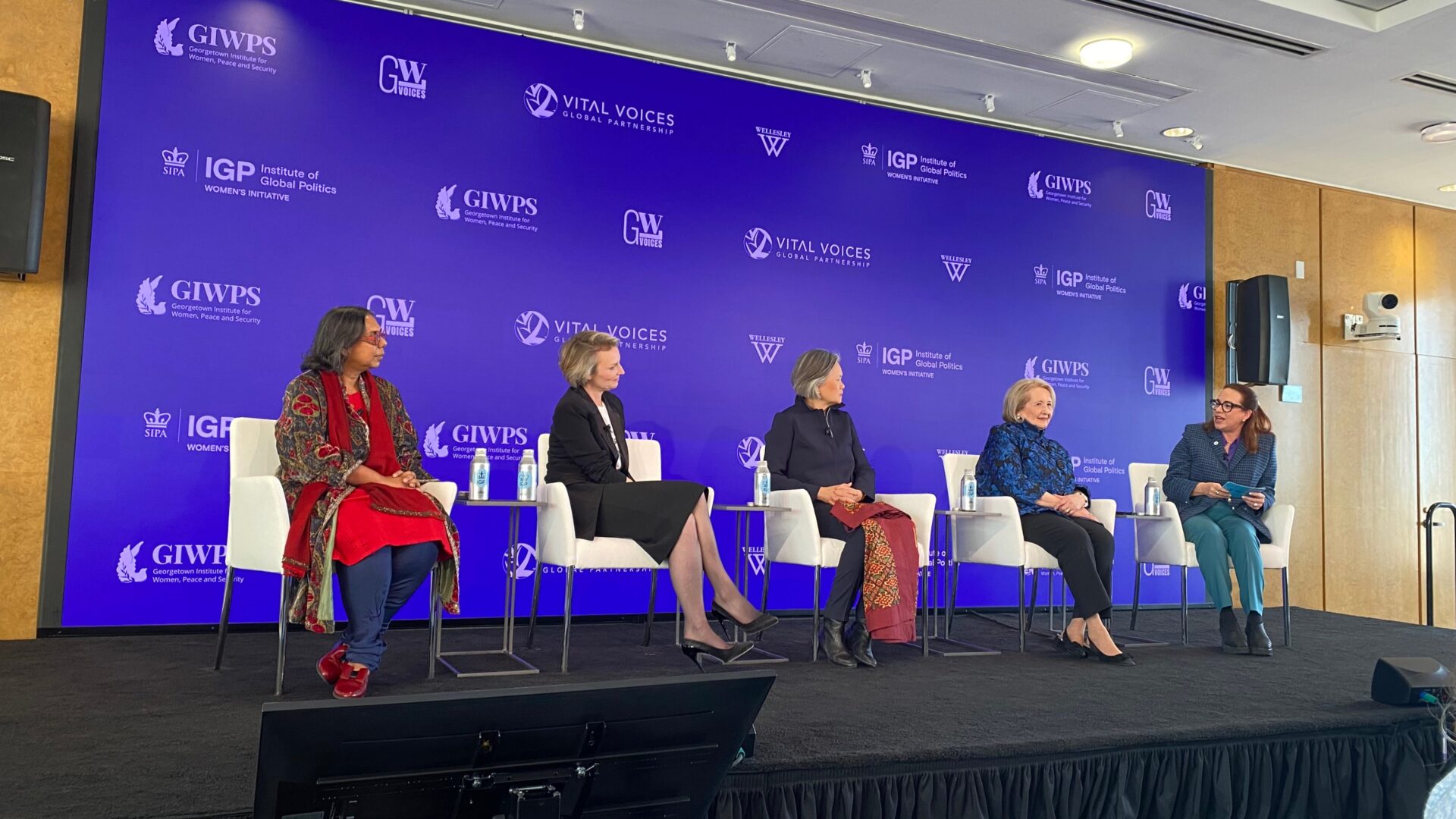
The Georgetown Institute for Women, Peace and Security (GIWPS) joined diplomats and representatives of civil society, academia, and the private sector in New York for the 69th Session of the Commission on the Status of Women (CSW), its second largest meeting after the opening of the General Assembly. The shadow of rollbacks on women’s rights and pushback to democratic norms around the world loomed large, with the US “joining forces with Russia, Argentina, and other conservative states to strike language promoting efforts to achieve gender parity” during closed-door negotiations for the CSW political declaration on women’s rights.
In the face of these regressions, it has never been more important to amplify women’s voices and reflect on opportunities to advance the Women, Peace and Security (WPS) agenda. To sustain these efforts, GIWPS hosted a series of impactful events at CSW on conflict-related sexual violence (CRSV) in Ukraine, gender apartheid in Afghanistan, addressing climate change in the UN Security Council, and commemorating the 30th anniversary of the Beijing Declaration, which affirmed women’s rights as human rights.
Read more about our efforts to advance the WPS agenda at this year’s CSW and calls to action from our partners.
Standing with Women in Ukraine
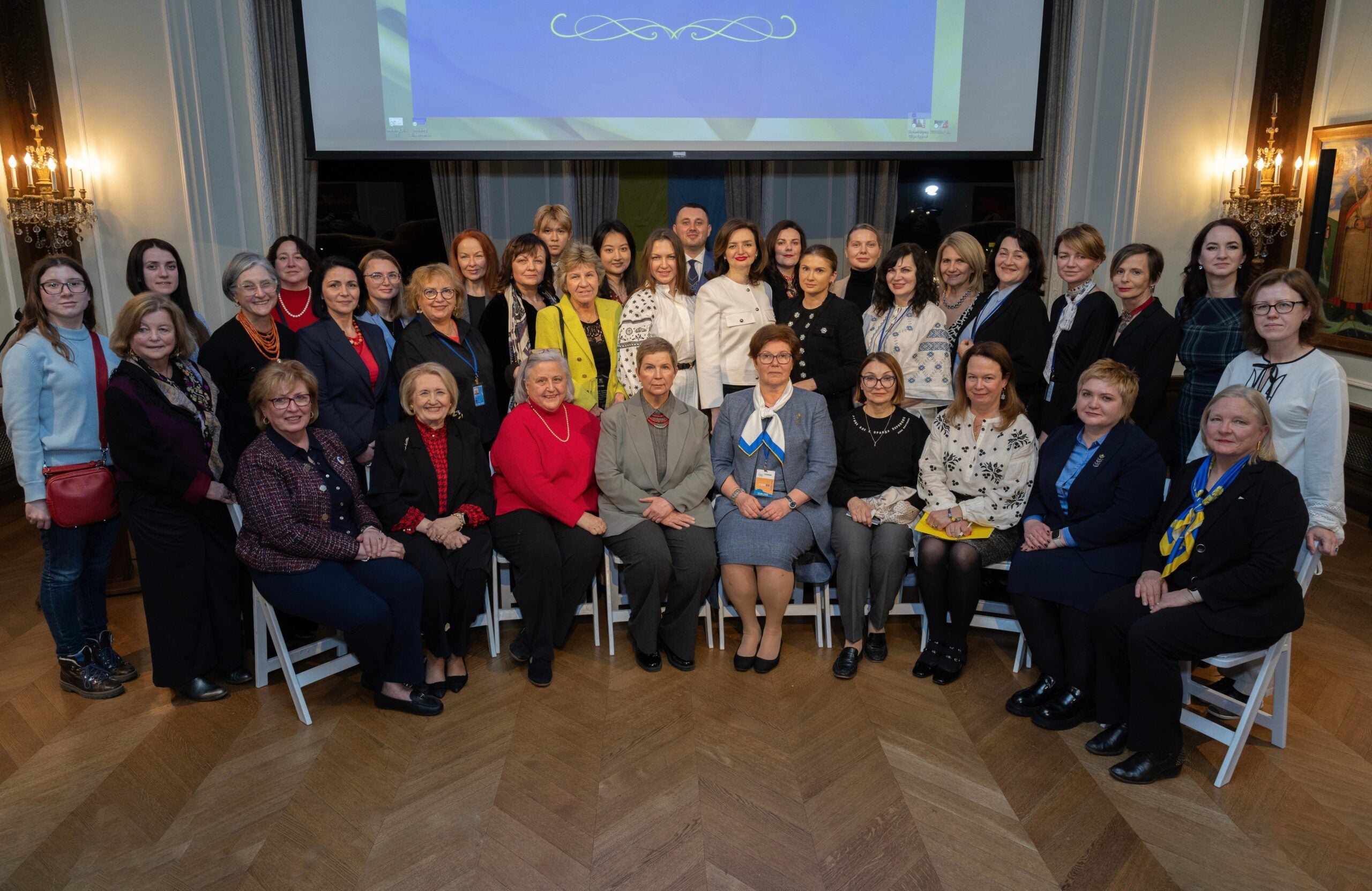
We held three significant events that centered gender-inclusive recovery, justice, and honoring survivors of CRSV in Ukraine.
Our first event, “Ukraine is Not Silent,” hosted at the Ukrainian Institute of America, was a powerful gathering of prominent Ukrainian and international voices to spotlight Ukraine’s unwavering resilience in the fight against CRSV and launch the published work of interviews from CRSV survivors, and legal, medical, and political experts working with survivors in Ukraine.
“It’s about women representing Ukraine—our dignity, our resilience, our unbreakable spirit,” said Liudmyla Huseinova, the founder of NGO Нумо, Сестри (“Numo, Sestri”), when asked what key message CRSV survivors would want to share with the world.
The event was hosted by the Deputy Prime Minister’s Office for European and Euro-Atlantic Integration of Ukraine, the Government Commissioner for Gender Equality Policy of Ukraine, and the Permanent Mission of Ukraine to the UN. Along with GIWPS, the event was co-sponsored by the Permanent Mission of the Republic of Lithuania to the UN, the World Federation of Ukrainian Women’s Organizations, the Ukrainian National Women’s League of America (UNWLA), Ukrainian Women’s Fund, the Self Reliance New York Federal Credit Union, and the Ukrainian Institute of America.
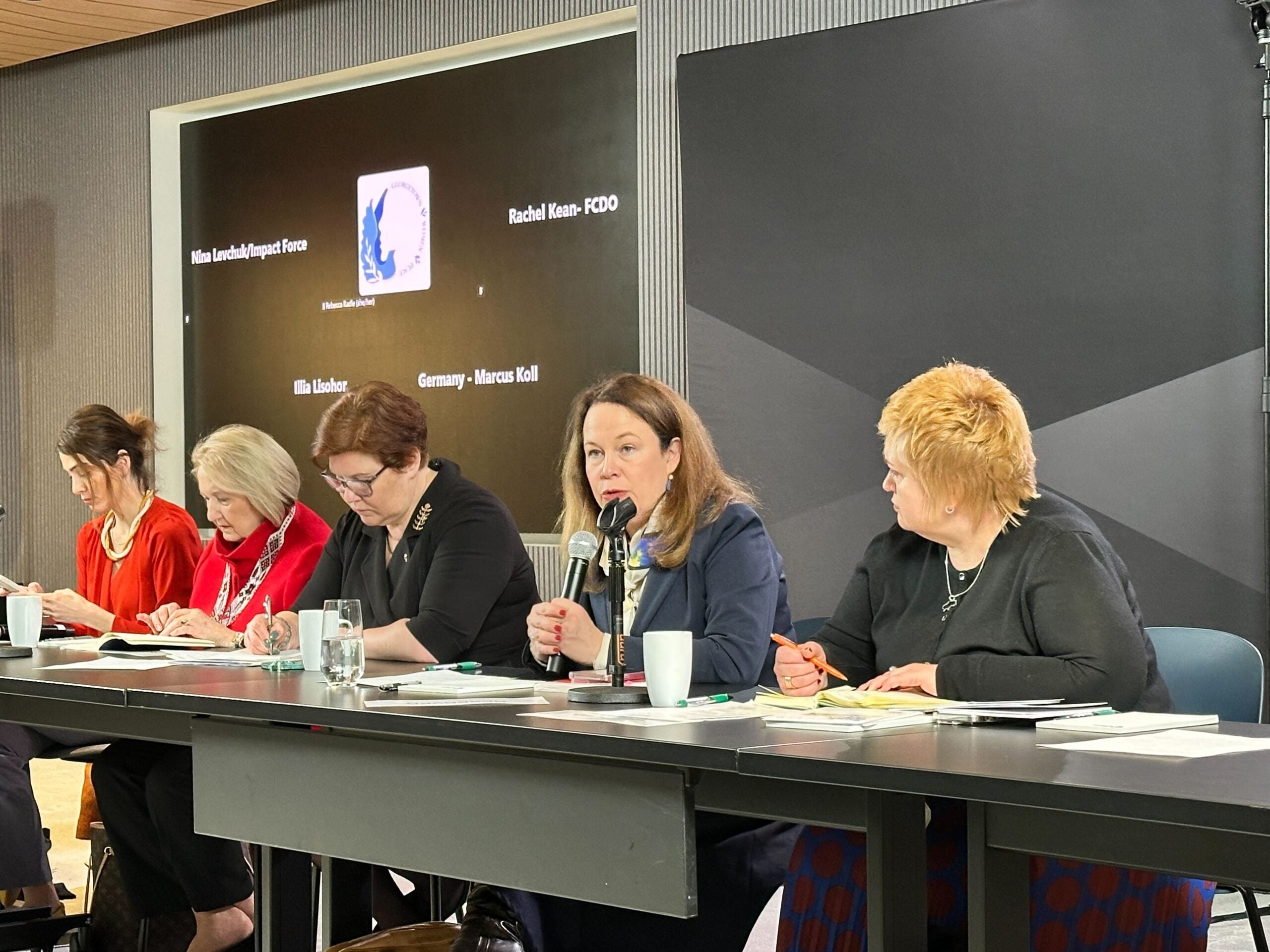
Together with The Rockefeller Foundation, we also convened a strategic session of the Alliance for Gender-Responsive and Inclusive Recovery for Ukraine, titled “Road to Rome,” to lay the groundwork for a meaningful focus on gender-inclusive recovery at the Ukraine Recovery Conference (URC) in Rome. Key priorities included ensuring a gender panel at URC Rome, strengthening collective messaging and advocacy, and mobilizing commitments from the private sector to promote Ukraine’s holistic recovery.
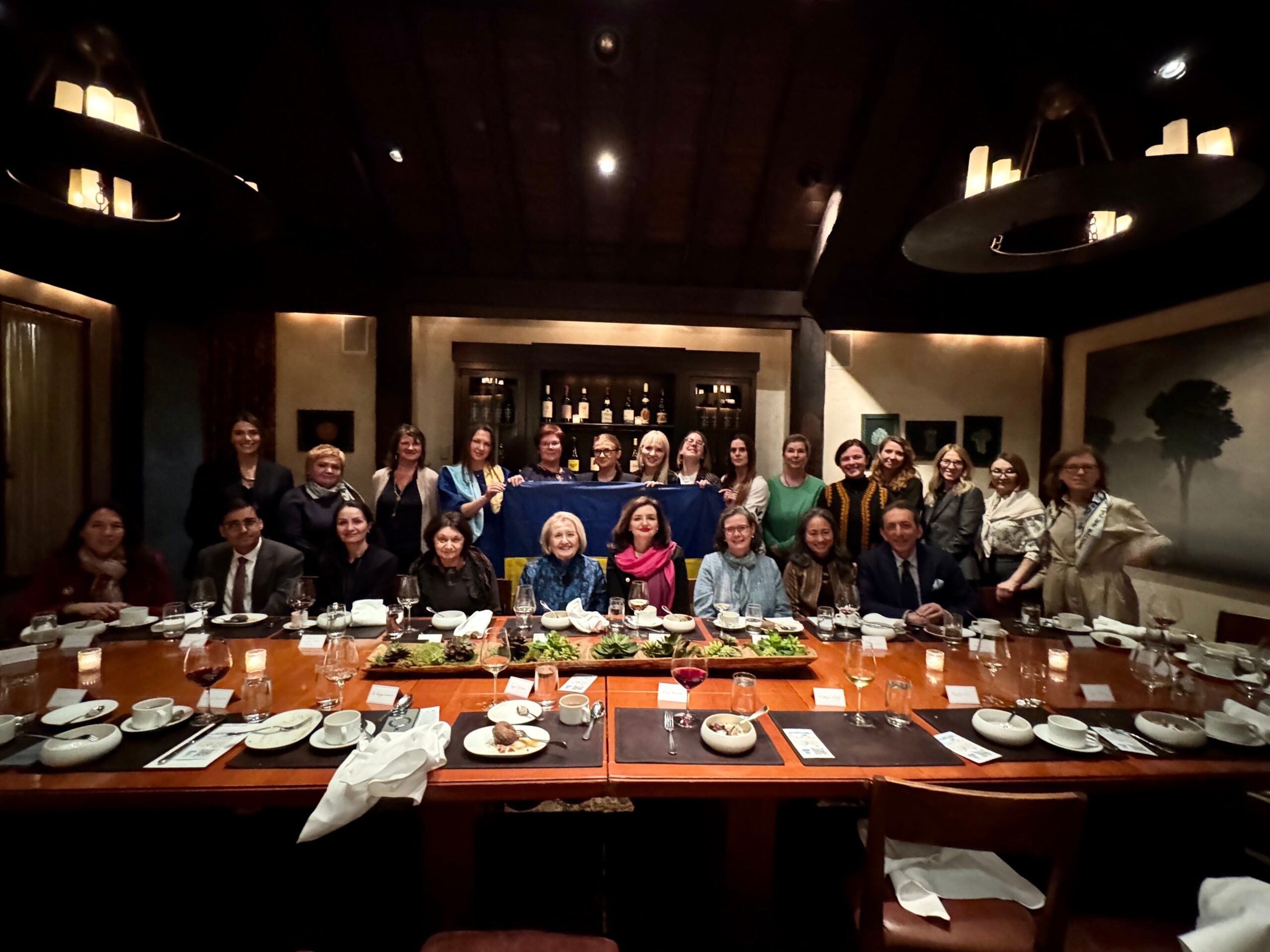
Finally, we brought together Ukrainian women leaders with high-level UN officials for a dinner discussion on “Honoring Survivors & Advancing Justice,” hosted by Georgetown Ambassador Alys Garman. The evening provided a platform for Ukrainian leaders and survivors of CRSV perpetrated by Russian forces to share their experiences and calls to action for global accountability and advancing justice. Survivors attending CSW also presented an open letter to UN Secretary-General António Guterres, urging the inclusion of Russia in the 2025 “list of shame” for its use of sexual violence as a weapon of war. You can support the call to include Russia on the list by visiting this link.
New Climate Research
At a high-level event hosted by the Permanent Mission of Denmark to the United Nations and the Embassy of Denmark in Washington, D.C., GIWPS launched two important new reports: “Advancing Gender, Climate, and Security in the UN Security Council: A Blueprint for Action,” authored by Jess Keller, and “Practical Guidance for Integrating Climate into WPS National Action Plans,” co-authored by Climate Policy Associate Christina Vetter and Research Director Dr. Jessica Smith, which were supported by the Embassy of Denmark in Washington, D.C.
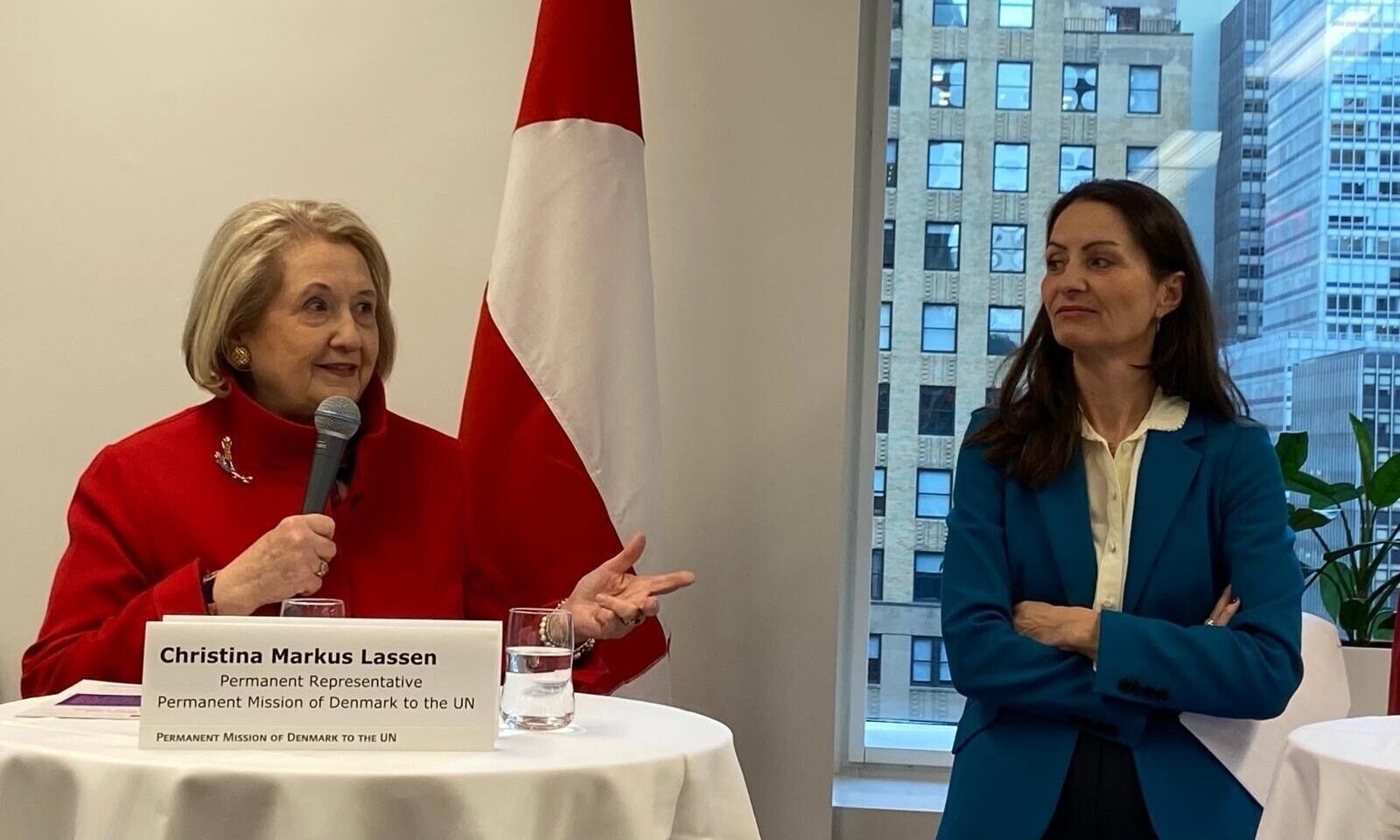
The reports aim to advance the intersection of gender, climate, and security—one of the priority themes for the Danish Government during its presidency of the UN Security Council this month.
“Denmark is committed to advancing both the WPS Agenda and the Climate, Peace, and Security Agenda. We believe these agendas should not be handled in silos,” said Ambassador Christina Markus Lassen, Permanent Representative of Denmark to the United Nations. “Climate change and gender inequality are more intertwined than we often acknowledge.”
During the event, Ambassador Markus Lassen proudly announced that the new GIWPS report will inform Denmark’s fifth National Action Plan on WPS.
Upholding the Rights of Afghan Women and Girls

At the UN Headquarters, GIWPS co-hosted a high-level event emphasizing the importance of women’s participation in fostering stability, peace, and security in Afghanistan.
For over three years, the Taliban’s systematic repression has stripped Afghan women and girls of their fundamental rights, including the right to education. This has not only stifled their individual potential but has also jeopardized Afghanistan’s long-term peace, security, and development.
During the event, Richard Bennett, the UN Special Rapporteur on the situation of human rights in Afghanistan, summarized his recent report on the systematic oppression of Afghan women and girls. In her opening remarks, GIWPS Executive Director Ambassador Melanne Verveer also highlighted the climate change crisis in Afghanistan that is compounding worsening conditions for women and severely affecting livelihoods. Afghanistan has experienced three consecutive years of drought and is one of four countries most at risk of climate impacts and least prepared to adapt, according to the United Nations Office for the Coordination of Humanitarian Affairs (OCHA).
Panelists called for the international community to prosecute current and past actions of the Taliban as well as expand digital access to women and girls who have been barred from school. They also called for formal actions such as organizing underground schools, protesting, and creating initiatives to keep young women and girls educated.
Lamar Zala Gran, founder and president of Empowering Afghan Women, urged participants and Council Members to “commit to actions, not just conversations.”
In addition to GIWPS, the event was co-hosted by the Permanent Mission of the Islamic Republic of Afghanistan to the United Nations, the Permanent Mission of the Republic of Albania to the United Nations, the Permanent Mission of Italy to the United Nations, the Permanent Mission of Denmark to the United Nations, the Permanent Mission of Malta to the United Nations, the Afghanistan Policy Lab at the Princeton School of Public and International Affairs, Women in International Security (WIIS) Italy, Harvard College Women’s Center, and the Organization for Security and Co-operation in Europe (OSCE).
Beijing+30: Addressing 21st Century Challenges to Gender Equality
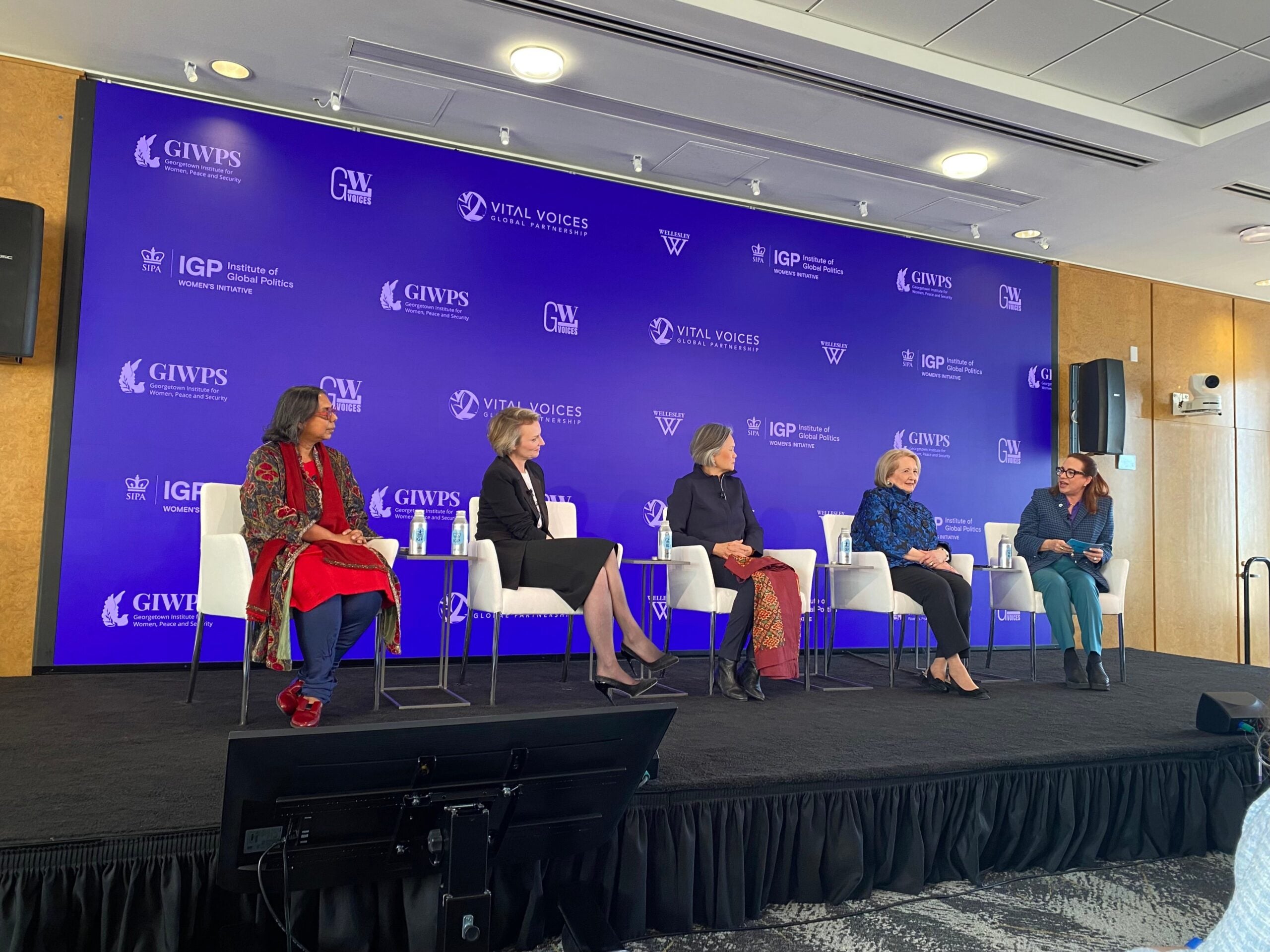
GIWPS partnered with the Institute of Global Politics Women’s Initiative at Columbia University’s School of International and Public Affairs, GWL Voices, Vital Voices, and Wellesley College to mark the 30th anniversary of the United Nations Fourth World Conference on Women in Beijing, where 189 nations adopted the Beijing Declaration and Platform for Action—the most comprehensive agenda for gender equality in history—and recognized that women’s rights are human rights.
Thirty years on, there are still major gaps in women’s economic and political participation. The percentage of women in parliaments around the world has regressed. There is also global democratic backsliding, which is inherently linked to attacks on women’s rights, including online attacks on women parliamentarians.
During the event, Ambassador Verveer spoke on the lasting impact of the 1995 Fourth World Conference on Women, reflecting on Secretary Hillary Clinton’s iconic declaration that “women’s rights are human rights.” Leaders at the event emphasized the need to unite around shared values and harness intergenerational leadership to pass and implement laws that protect women’s rights.
“This sparked a movement that rekindled a commitment to go forward and to ensure once and for all that women’s rights are human rights…and that indeed happened,” said Ambassador Verveer.
Explore More

Iranians are Making History
Iran is one month into historic protests, the most widespread since the…

Women, Peace and Security Conflict Tracker: January Updates
Our Women, Peace and Security Conflict Tracker combines real-time data points and…

A Message from Our Executive Director: Threats to Democracy and Rule of Law in America
We at the Georgetown Institute for Women, Peace and Security (GIWPS) are dedicated to…